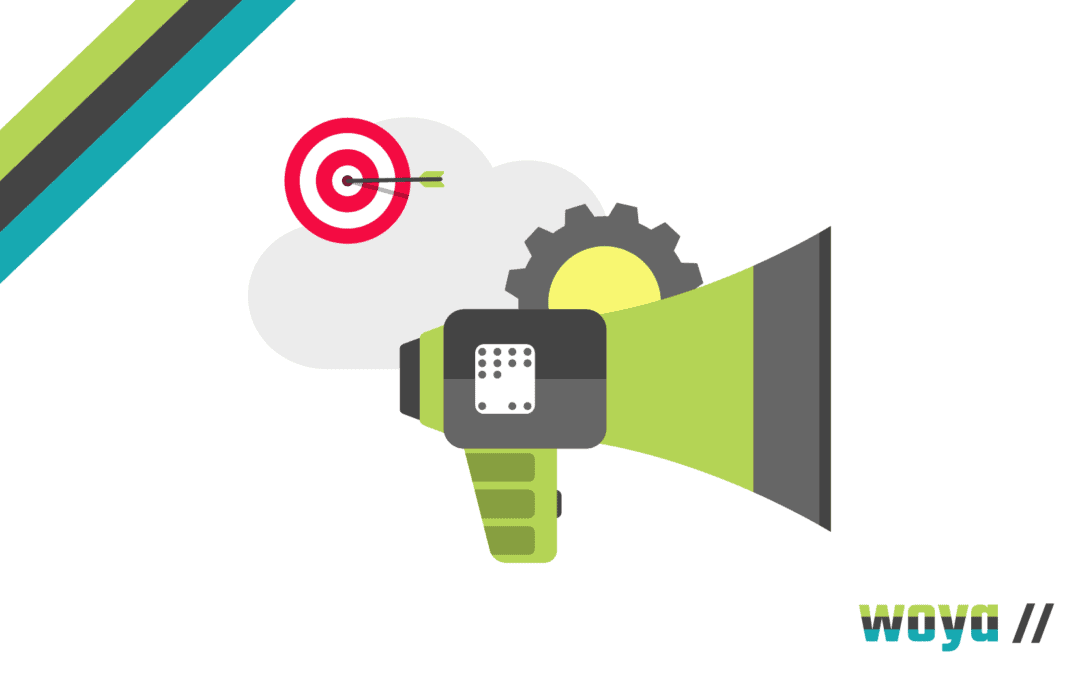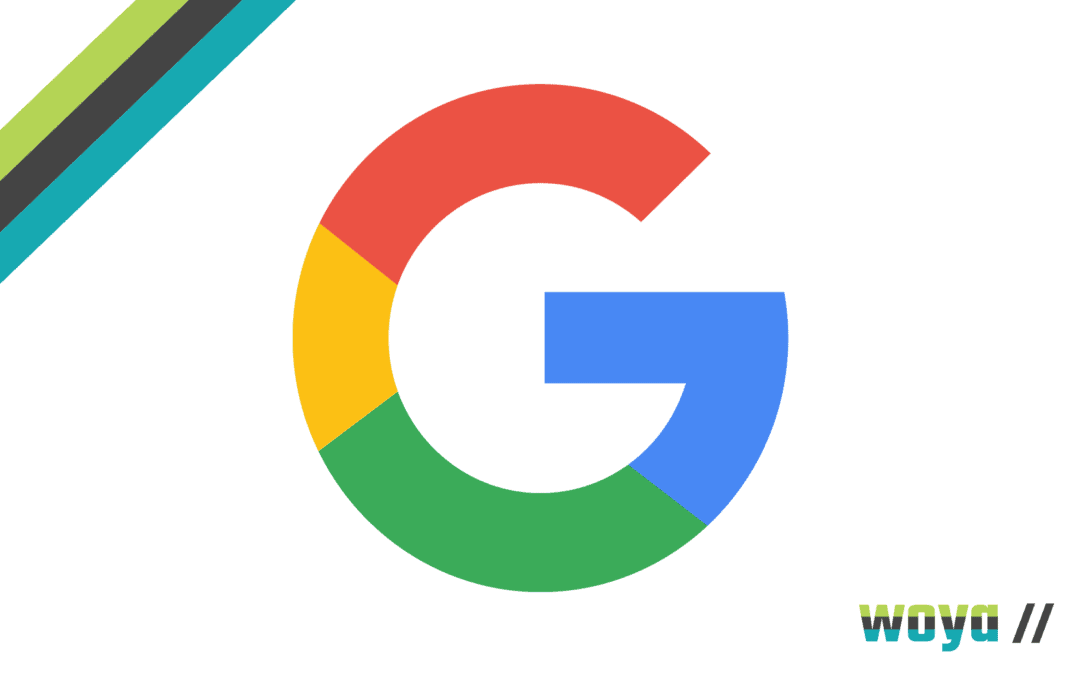
Business Growth Marketing Tips for 2023
Reading Time: 6 minutesThere are lots of things that you can do on the marketing front to tackle the last few months of 2022 and the new year ahead with the best possible chances of optimising business growth.
The team at Woya suggest you follow these top business growth marketing tips and grab the opportunities that 2023 has to offer.
Business Growth Marketing Tip #1 – Have a Mobile Responsive Web Presence
Over 60% of all web traffic is now made through a mobile device and so if a business’ website isn’t formatted to respond to the device on which its being displayed appropriately, those visiting will be forced to go elsewhere – and elsewhere may just be the website of your competitor.
Mobile responsiveness is now part of the standard offering of just about every web development business and if your business’ website isn’t set up for it, get to refreshing the whole thing to fit it.
Mobile responsiveness is often just considered to be images formatting down in a line for smaller screens but in reality, there’s a lot more to it. You may need to edit your website’s structure for mobile devices in order to more easily display and show calls to action and conversion opportunities, and it might be that an online purchase process can be streamlined to suit.
Security certification ‘behind the scenes’ on websites also needs to vary for mobile devices, so it’s definitely worth investing in a web designer who’s able to best advise and guide you through the options.
Business Growth Marketing Tip #2 – Visually Optimise Your Website
A website that offers a good user experience (UX) is not only more likely to drive conversions and positive action from those who visit it, it’s also more likely to be ranked higher on search engine results.
The usability and security of websites is now just as important for SEO as the usage of keywords and so is not to be underestimated in its power.
It is estimated that Google makes at least two changes a week to its algorithm in order to better present search results to users, and all of the recent updates have included a focus on UX over just language usage. This means that the SEO tactics of days gone by are fast becoming irrelevant, and in some cases could even harm your website’s performance.
It’s imperative that you focus on the up-to-date and ever changing methods of SEO practice and that your site is audited to highlight areas of opportunity.
Business Growth Marketing Tip #3 – Invest In SEO
Organic search is often thought of as ‘free’ in comparison to paid-for advertising, but it does require the investment of time and resource in order to manage it properly and make it happen. Now is the time to make a move, up your game and get ahead of the competition.
Work on SEO should be a continual process and so there’s no one project that you can complete and see the job done. Instead, businesses should invest time in the creation of appropriate, helpful and shareable content, ensuring the usability of their site is top notch and that they build up backlinks from high-authority sources.
We don’t recommend hiring an internal SEO consultant to work directly for your business. It is definitely more cost effective with the services of a specialist SEO consultant or SEO agency to drive results. With Woya SEO packages starting at £750 per month, this will certainly deliver more bang for your buck than managing an internal team.
Business Growth Marketing Tip #4 – Optimise for Local Search
Businesses that operate in or serve a particular geographical area can find vast benefit in the use of Google local SEO services. Taking the time to claim and optimise your Google Business Profile will elevate your organic exposure on search engines, with specific targeting toward your demographic audience.
Local search results really stand out from others on Google Maps, SERPs (Search Engine Results Pages) with photos, contact information and highlights. It may seem counterintuitive to ‘think local’ on a search engine so global, but Google has invested heavily in its local SEO and reports that users find it extremely helpful.
Woya’s Local SEO packages include both on- and off-site optimisation as well as full management of a Google Business Profile account.
Business Growth Marketing Tip #5 – Take A Smart Approach to Social Media
A common pitfall is that businesses put time and effort into social media marketing, just because they feel they should, so it takes up time and resource without any real ROI.
You don’t need to be on every social media channel, but you should be present on whichever channels your target demographic are. The creation of content for social media that is engaging and invites interaction can help build a strategic relationship with your customer base rather than just a transactional one, and will allow for a more positive personal connection to be made.
Social media trends move fast, and something can blow up in minutes. It’s important for businesses not just to focus on ‘going viral’ but instead to understand what they want to achieve from their social media presence. Keep it relevant and appropriate for your audience and don’t diversify further than you need to.
Broadening your niche will only result in an audience who won’t engage and/or convert, and that’s not a good use of internal resources.
Business Growth Marketing Tip #6 – Up Your Content Marketing Game
Marketplaces are more crowded than ever and competition is fierce. The creation of unique, helpful and relevant content for customers is no longer a ‘nice-to-have’ marketing tool, but an essential one.
Content is often thought of as just blogging, but can be just about anything to position you as a thought-leading expert in your industry. Think videos, podcasts, e-books, printables, and instruction guides, just as a start.
All too often businesses get hung up on producing thousands of pieces of content just for the sake of having them. Instead, repurpose a single piece of content into other forms, use a freebie as a ‘lipstick offer’ to draw in an audience and try to balance out your content portfolio between current and evergreen in order for it to sustain itself long-term.
Business Growth Marketing Tip #7 – Add Digital PR to Your Marketing Strategy Mix
PR has traditionally entailed maintaining a decent relationship with your local newspaper, but in the age of the internet, the whole concept of PR has been transformed.
Digital PR involves the use of online systems to send business press releases to a myriad of relevant media worldwide. This increases your business’ brand exposure further than just local titles and helps increase coverage levels. In turn, this enhanced coverage can have a further positive impact on your SEO – as band mentions and links back to your website from high authority sites will boost your SEO ranking.
Positioning your brand as an expert in its field has a myriad of long-term benefits and will lead to further growth opportunities in the future. Be bold, be brave, and get out there – nail your colours to the mast and put your name to your brand values.
Business Growth Tip #8 – Strategise!
Most businesses now understand that a digital presence is critical to marketing, but without steering your efforts in the right direction, the optimisation and success will be limited.
It’s important that a thorough digital marketing strategy is created and managed in order to ensure that all work has an impact and is converting as expected. Without a proper plan, all too often digital marketing efforts become ad hoc and lack the clarity of direction required for real success.
A comprehensive digital marketing strategy will steer online activity across a variety of appropriate channels and keep messaging consistent throughout; so no matter how or where consumers come across your brand, they’re able to identify it. It will also speak to two audiences: existing customers, and potential customers, and maximise the opportunities to interact with both.
Business Growth Marketing Tip #9 – Work With Experts
Woya Digital are SEO experts and specialise in increasing the visibility and customer base of organisations online.
No matter how niche or specialised your organisation, we can help boost your exposure and increase your bottom line. Our team of experts work on a basis of continuous learning and improvement to ensure that we’re always at the forefront of SEO and digital marketing developments – so you can be, too.
All of our packages are constructed for stretched budgets, and everything is paid monthly with no upfront investment. Why hire your own marketing resource when you can use ours? Get in touch to discuss your organisation’s 2023 goals, and let’s chat about how we can help you in achieving them.




